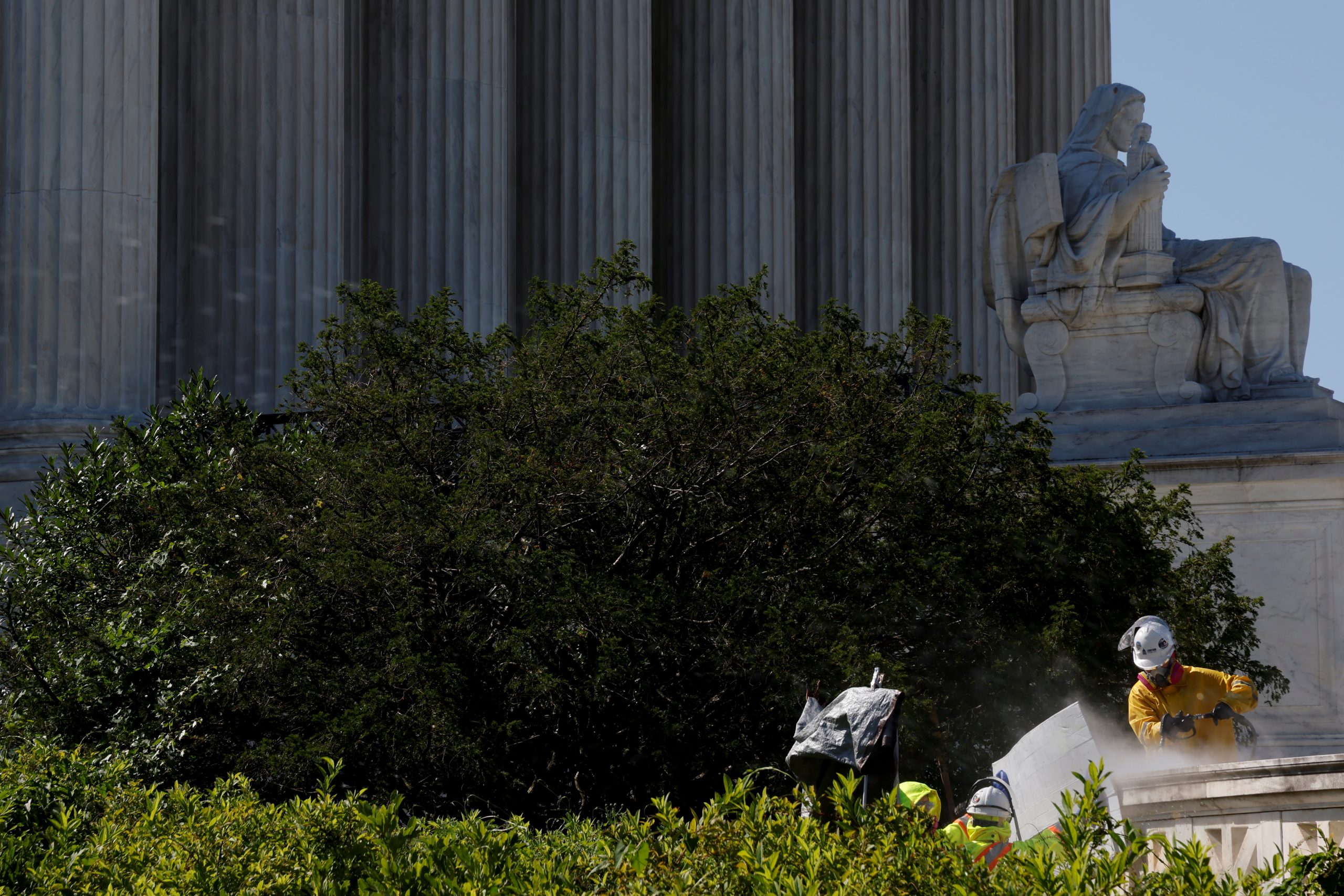
[elfsight_social_share_buttons id=”1″]
The U.S. Supreme Court on Monday declined to consider whether the public has a right to see significant decisions issued by a secretive court that approves government surveillance requests including some that are highly contentious.
The justices turned away an American Civil Liberties Union bid to gain access to U.S. Foreign Intelligence Surveillance Court decisions made before 2015 involving what former President George W. Bush’s administration called the “global war on terrorism” after the Sept. 11, 2001 attacks on the United States. The ACLU had appealed a decision by a specialized appellate court on surveillance matters denying it such access.
Conservative Justice Neil Gorsuch and liberal Justice Sonia Sotomayor said they would have taken up the case. Gorsuch wrote that the case raises questions about public access to proceedings of “grave national importance” and the Supreme Court’s own power to supervise lower courts.
“If these matters are not worthy of our time, what is?” Gorsuch asked.
The ACLU has said the public has a right to know notable decisions made by the court, sometimes called the FISA court after the law under which it was created, the Foreign Intelligence Surveillance Act of 1978. The ACLU said the U.S. Constitution’s First Amendment, which guarantees free speech and freedom of the press, provides a limited right of public access to the FISA court’s most significant decisions.
Tech giant Microsoft Corp and 34 media organizations have supported the ACLU’s effort. The FISA court in the past has approved government requests for information held by Microsoft.
Technological advances mean that the FISA court “evaluates broad programs of surveillance that can have profound implications for Americans’ privacy, expressive and associational rights,” the ACLU’s lawyers said in court papers.
President Joe Biden’s administration urged the Supreme Court not to hear the appeal, arguing among other things that there are other ways the ACLU could try to make the information public.
The FISA court, founded at a time of heightened concern among lawmakers about the need for greater oversight of U.S. intelligence agencies, makes its decisions on government requests generally without hearing from anyone but U.S. Justice Department lawyers in private proceedings. Its rulings are kept confidential for national security reasons.
Its 11 judges are appointed by U.S. Chief Justice John Roberts. They are full-time federal district court judges who take on the task as an additional responsibility.
The actions of the FISA court came into public view in 2013 when its role in approving the government’s secret collection of millions of raw daily phone records of Americans was revealed in a leak of classified information by former National Security Agency contractor Edward Snowden, who faces U.S. espionage charges. He fled the United States and was given asylum in Russia.
The FISA court was also embroiled in former President Donald Trump’s claims that the FBI unlawfully investigated his campaign in the run-up to the 2016 presidential election. The Justice Department’s internal watchdog in 2019 concluded that the FBI made errors in its warrant applications seeking FISA court approval to conduct surveillance involving contacts between members of Trump’s campaign and Russians.
Congress in 2015 passed the USA Freedom Act that ordered the government to declassify certain decisions issued by the FISA court.
The ACLU in 2016 filed a motion with the FISA court to try to gain access to rulings before then relating to the U.S. “global war on terror.”
Between 1978 and the 2013 Snowden leak, only two of the court’s multitude of rulings were made public, the ACLU said.
The FISA court in 2020 decided that it did not have the authority to consider the ACLU’s request. It did not rule on the underlying First Amendment issue. That decision was upheld by the Foreign Intelligence Surveillance Court of Review later that year.
(Reporting by Lawrence Hurley; Editing by Will Dunham)
Copyright 2021 Thomson/Reuters
